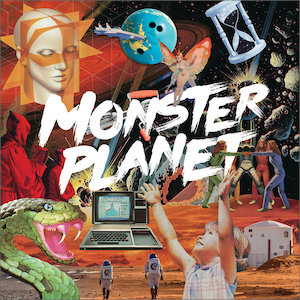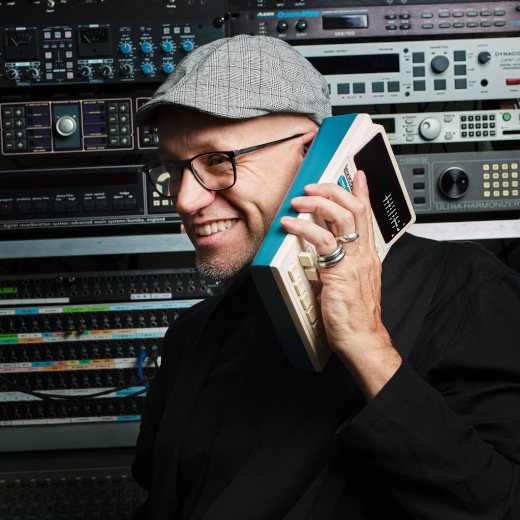
But the results are really cool! (LAUGHS) A musician friend regularly sends me pictures he’s done with Stable Diffusion and they’re rarely boring. At the same time while he’s not exactly waving a loaded pistol around but it’s not lost on him that he’s training the machines even as he goofs around. So now that you’ve heard way too much from me about it (BOTH LAUGH), I’m curious what your feelings are about what’s unfolding before us with the rise of AI and machine learning.
RH :: Well, it’s a tool, and as with all the other tools we had in the past, the tools have an impact on the artistic outcome. If you play with a Yamaha Dx7 (https://www.vintagesynth.com/yamaha/dx7) you get a certain sound and it suggests something to you and you play some chord progressions and stuff like this because that’s what you can do with a polyphonic synth. It does great e-pianos and stuff like this, so you play that stuff. And also if you have a Buchla system, you have other ideas what to do with it.
With AI, I feel to a certain degree it’s the same. The technology does a few things really amazingly good or interesting. And it also leaves a lot of stuff unanswered. So the neutral perspective of mine is, let’s see what people do with it, and then we judge. I’m very, very certain that especially young people will find ways to use all these tools in ways that are super creative. Because that always happened in history that people were using tools to do stuff that was not intended. How people use the 808 and the 308 three to do stuff that was way beyond what Roland had in mind.
Yes, exactly!
RH :: So that is my positive outlook. And I used a bit of the current tools to just explore it a little bit also for my new album Studio (Imbalance Computer Music). There’s one tool — I actually forgot which one it was — which allowed you to upload your own musical material and to have the algorithm be influenced by your own input. I turned a pretty straight drum pattern into something that sounded a little bit more orchestral. I really like the result as a very interesting filter, an interesting filter that adds a compositional layer to it that I would not have come up with by myself. And that was interesting, but it was especially interesting because of all the artifacts, because of all the strangeness. And I found that inspiring. What I don’t find inspiring is to use the same tool to create a boring house, a rip-off that could run in a car commercial.
Yeah, exactly. “Banality to pay the bills.” Nope.
RH :: I know people who are at least partially making their living doing music on demand for a car commercial and stuff like this. Those jobs are gone. Because if you can type in, “Orchestra score a C minor, blah, blah,” hit return and you get your score. And you make 15 different versions of it and you show the producer these 15 versions and the producer says, “Version 5, is it?” You’re done. No one needs to play a violin anymore for that. That is, of course, a reality that’s frightening and will be problematic because it is happening not only in music but everywhere. I don’t know yet what this will do to culture and to employment rates and jobs and so on. But on the artistic side, I’m not too worried for the reason I mentioned that I always believe people will find creative ways.
Agreed. And for what it’s worth I tend to see things like this as a pendulum. And where it’s swinging right now is everybody and their dog is getting in on AI. But which song did you use it on in Studio? Do you remember?
RH :: I used it for… I need to actually look at the track list because I forgot it. (Robert reaches for a box of wrapped Studio CD’s.
Oh, you got them right there! That’s handy.
RH :: Yeah. Actually, they look really nice. I’m quite happy. Yeah, (the AI manipulated sample) is in the second track, “Through Stalactites.” It’s somewhere hidden in there.
I love the font.
RH :: You know that you can download it, right?
Oh, do I?! (LAUGHS) I’ve already used it on some album art! While I was listening I thought “Everybody’s going to start releasing a ‘font album’ now. You, then Autechre then Scanner then – ” (BOTH LAUGH) But I love the new album. I’m a big fan of yours and though I’m not a completest I know your discography very well. What’s amazing with Studio is it’s as if you were really looking back as well ahead to what you’re doing now and in the future. It’s got a breadth and range I’ve not heard in your music before while at the same time having classic Monolake feel.
RH :: You have no idea how happy this perspective makes me because I think, and this brings us maybe back to your discovery about your age; I didn’t have the feeling anymore with this album that I need to fulfill any expectation. That gave me the liberty to say, I do whatever I like, and it takes as long as it takes. If I want to revise a track another five times until I find it’s right, then I do it. I don’t need to adhere to a certain style. I don’t even want to define what it is. If people ask me, “Oh, is this electro? Is this techno? Is this IDM?” I say, “It is what it is.” Now, if you want a label, put a label on it. It’s me. This is something that, in a way, of course, brings me back to the very beginning, because at the beginning, you have a similar situation simply out of innocence. With your first release, no one has an expectation. You just do what you like. And then afterwards comes the expectations. And then comes everything. I remember clearly that with every single album release in the past, there was always this notion of, “Yeah, but I did that one better, and I like that one better.”
In yoga they’d call that beginner’s mind. Also reminds me of the Elvis Costello quote along the lines of “The world gives you 20 years to make your first album then 1 to make your second.”
RH :: (LAUGHS) Exactly, yes. It’s as if none of your blood, sweat, and tears already went into it and put it forward. And I honestly don’t care anymore. I did this for me because I wanted to do it and I had fun doing it. And if this fun radiates, which it seems to do, then I’m super happy. But I think I make music, first of all, for myself because I really love the process. This is why it’s called Studio also. I love being in here and I love interacting with my machines and being happy about it. It’s for my personal happiness that I do this. I need this. Then comes my friends. If my friends and musicians like it, then I’m happy, too. And then comes the rest. And it’s not important that I sell a lot of copies. If one person whose judgment I really like says, I like it, that means much, much more to me than if 10,000 random people say this is great.
Yeah, I can see that. A lot of people I’ve spoken with say the same thing: that their music is first and foremost for themselves. Even in the realm of electronic music where it’s very different from the rock structure of album, touring, album, touring, whatever. And Studio has a very has a very distinctive Monolake feel but at the same time there’s a lightness and moments of pure amazement. I listened to “Prime Lundi”…
RH :: Yeah, it’s a favorite.
…four times when I first got Studio and I was like, “What is he doing? What’s going on here? What is this?” With “Stasis Field,” “Prime Lundi,” and “Red Alphonso,” I kept listening over and over again. They were really fascinating.
RH :: I’m really happy. There’s so many stories about every single one of these tracks.
No doubt. Now let me just ask you, is it ‘Eclipse’ that has the orchestral strings?
RH :: There’s two. There’s the “Eclipse” and “Red Alphonso” also have this pretty…






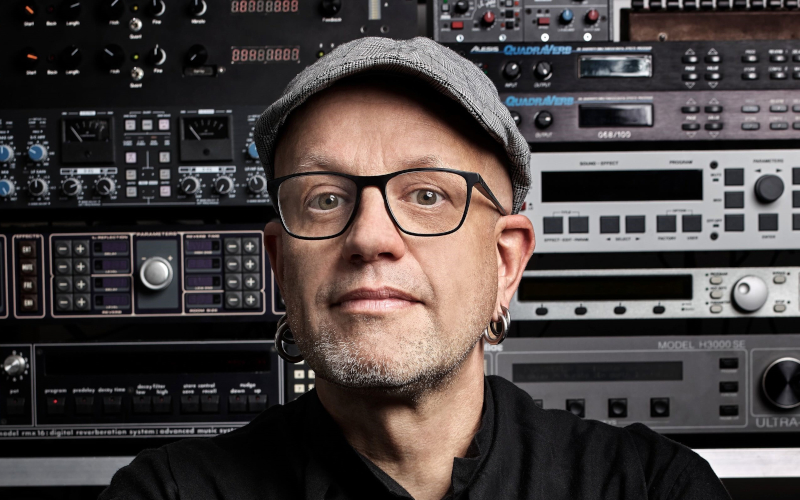
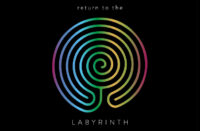



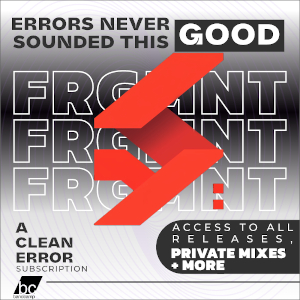

![Pole :: Tempus Remixes (Mute) — [concise]](https://igloomag.com/wp/wp-content/uploads/2025/04/pole-tempus-remixes_feat-75x75.jpg)






![Hasbeen :: Bunker Symphonies II (Clean Error) — [concise]](https://igloomag.com/wp/wp-content/uploads/2025/04/hasbeen-bunker-symphonies-ii_feat-75x75.jpg)
